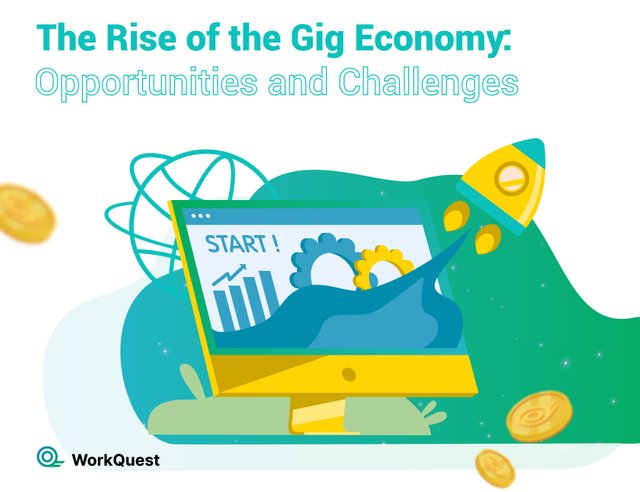The gig economy, also known as the sharing economy, has seen a significant increase in recent years. This economic model is characterized by the prevalence of short-term contracts or freelance work as opposed to traditional, long-term employment. Companies such as Uber, Airbnb, and Task Rabbit have popularized the gig economy and made it more mainstream 🚗🏠🛠️
The rise of the gig economy has brought about many opportunities for individuals. One of the most significant benefits is the flexibility it offers. Gig workers can choose when and where they want to work, allowing them to have a better work-life balance 🕰️🏡. They can also pick and choose the jobs they want to do, which can be especially appealing for those who want to try different types of work or to pursue their passions🌟. Additionally, gig work can provide an alternative source of income for those who are unable to find traditional employment or simply looking for a side hustle to fund their avocado toast addiction 🥑🍞.
However, with the rise of the gig economy, there are also several challenges that need to be addressed. The most significant challenge is the lack of job security and benefits that traditional employment offers. Many gig workers are not covered by traditional employment protections such as minimum wage laws, overtime pay, and unemployment insurance. They also don't have access to benefits such as health insurance, retirement plans, and paid time off, unless they count the "sick days" they can take while binge-watching their favorite show on Netflix 📺🤒.
Another challenge is the lack of consistency in income. Gig workers often have to rely on a constant stream of new jobs to maintain their income level, which can be difficult for those who are unable to secure a steady flow of work 💸💼. Additionally, gig workers often have to bear the cost of their own equipment and expenses, which can be a significant burden, unless you count the cost of electricity to charge their smartphones, laptops and other devices, that is 🔋💻.
In conclusion, the gig economy has brought about many opportunities for individuals to work flexibly and pursue their passions 🌟🚀. However, it also poses significant challenges, particularly in terms of job security and benefits 💼💸. Governments and companies need to address these challenges to ensure that gig workers are protected and treated fairly 🛡️💼. With the right policies and regulations in place, the gig economy can provide a viable alternative to traditional employment for many people, and most importantly, help them afford their avocado toast cravings 🥑🍞.
